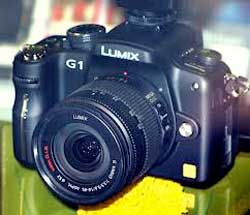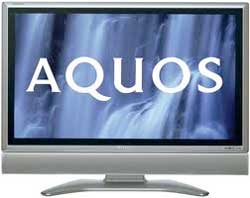Panasonic, Sharp point to better times ahead

The nine-month results comes as the country's electronics companies, including Sony, undergo painful restructurings aimed at stemming years of record losses.
The country's struggling electronics sector has faced serious challenges in recent years, with television sales plunging while foreign rivals such as Apple and Samsung surge past them in the lucrative smartphone market.
Digital camera makers have also suffered as the move to smartphones has hammered demand for point-and-shoot offerings.
Panasonic said it swung back into the black with a nine-month net profit of US$2.4bn after cutting costs, buoyant sales in its auto division including GPS navigation products, and the yen's fall over the past year.
The ¥243.0bn net profit between April and December reversed a net loss of ¥623.8bn over the same period a year ago, while sales came in at ¥5.68trn, a rise of 4.4%, it added.
Panasonic - recovering from combined losses topping US$15bn in the past two fiscal years - expects to earn ¥100bn in net profit for the year to March.
But sales of household appliances and digital consumer products, including its struggling television business, remained weak as the company shifted its attention away from loss-making divisions as part of a wider restructuring.
"Sales of digital consumer products decreased while focusing on profitability rather than sales volume," it said in a statement.
Panasonic has said it will abandon the consumer smartphone market and stop production of plasma television screens, in line with a broader industry shift away from plasma screens. Hitachi and Pioneer have also exited the market in recent years.
Sharp's profit boost

Sharp, the manufacturer of Aquos-brand electronics, said it booked a ¥17.7bn net profit in the April to December period, reversing a net loss of ¥424.3bn a year earlier.
Sharp said sales jumped 21% on brisk demand for panels, including its popular "IGZO" displays for mobile phones.
The firm added that it had also made big cuts in labour costs and capital investment.
It boosted its full-year operating profit forecast by 25% to ¥100bn, while leaving an annual net profit forecast unchanged at ¥5bn.
The move back to profitability is a big reversal for Sharp, which warned in 2012 that it might go out of business as it scrambled to secure crucial bank loans while offering its Osaka headquarters as collateral.
While the yen, which has lost about a quarter of its value against the dollar since late 2012, is good news for the sector, the impact of the weak currency won't last forever, said Mitsushige Akino, analyst at Ichiyoshi Investment Management.
"Japanese electronics firms have to quickly carry out their restructurings, including launching more competitive products, while the weak yen gives them breathing space," he told AFP.
Sony, which reports it earnings on later this week, has also returned to profit after losing money four years in a row.
Strong demand for its Xperia-brand smartphones and new PlayStation 4 games console helped boost results, along with a money-making movie business.
But Sony's jump back into the black was still largely due to fluctuations in the value of the yen and gains from a string of asset sales - including unloading its Manhattan office building for more than US$1.0bn.
Source: AFP via I-Net Bridge
Source: I-Net Bridge

For more than two decades, I-Net Bridge has been one of South Africa’s preferred electronic providers of innovative solutions, data of the highest calibre, reliable platforms and excellent supporting systems. Our products include workstations, web applications and data feeds packaged with in-depth news and powerful analytical tools empowering clients to make meaningful decisions.
We pride ourselves on our wide variety of in-house skills, encompassing multiple platforms and applications. These skills enable us to not only function as a first class facility, but also design, implement and support all our client needs at a level that confirms I-Net Bridge a leader in its field.
Go to: http://www.inet.co.za























